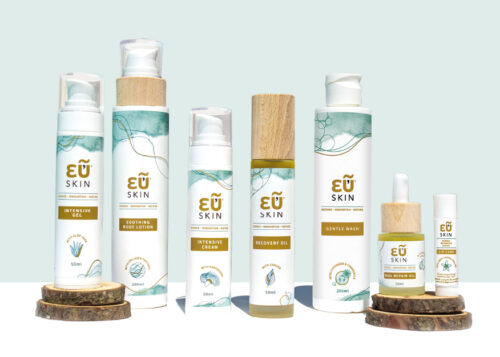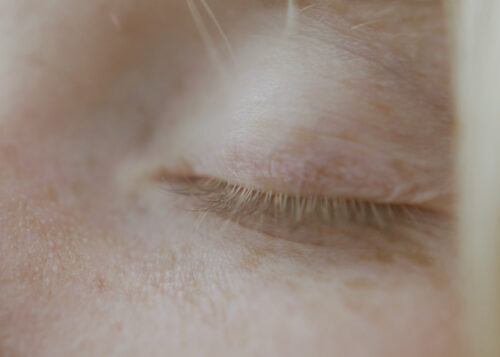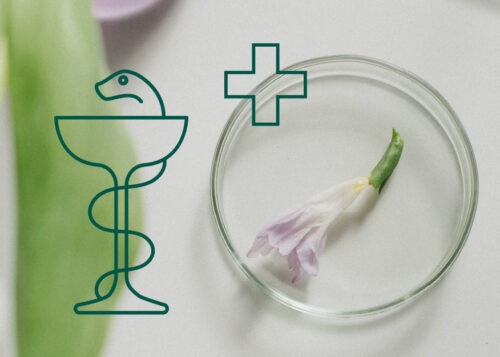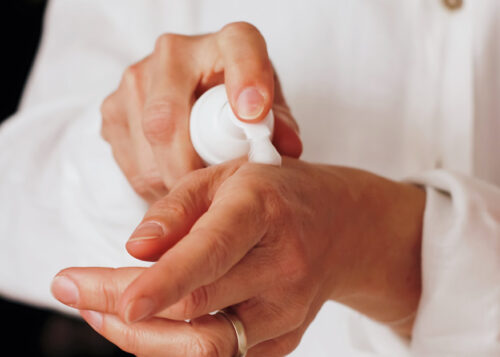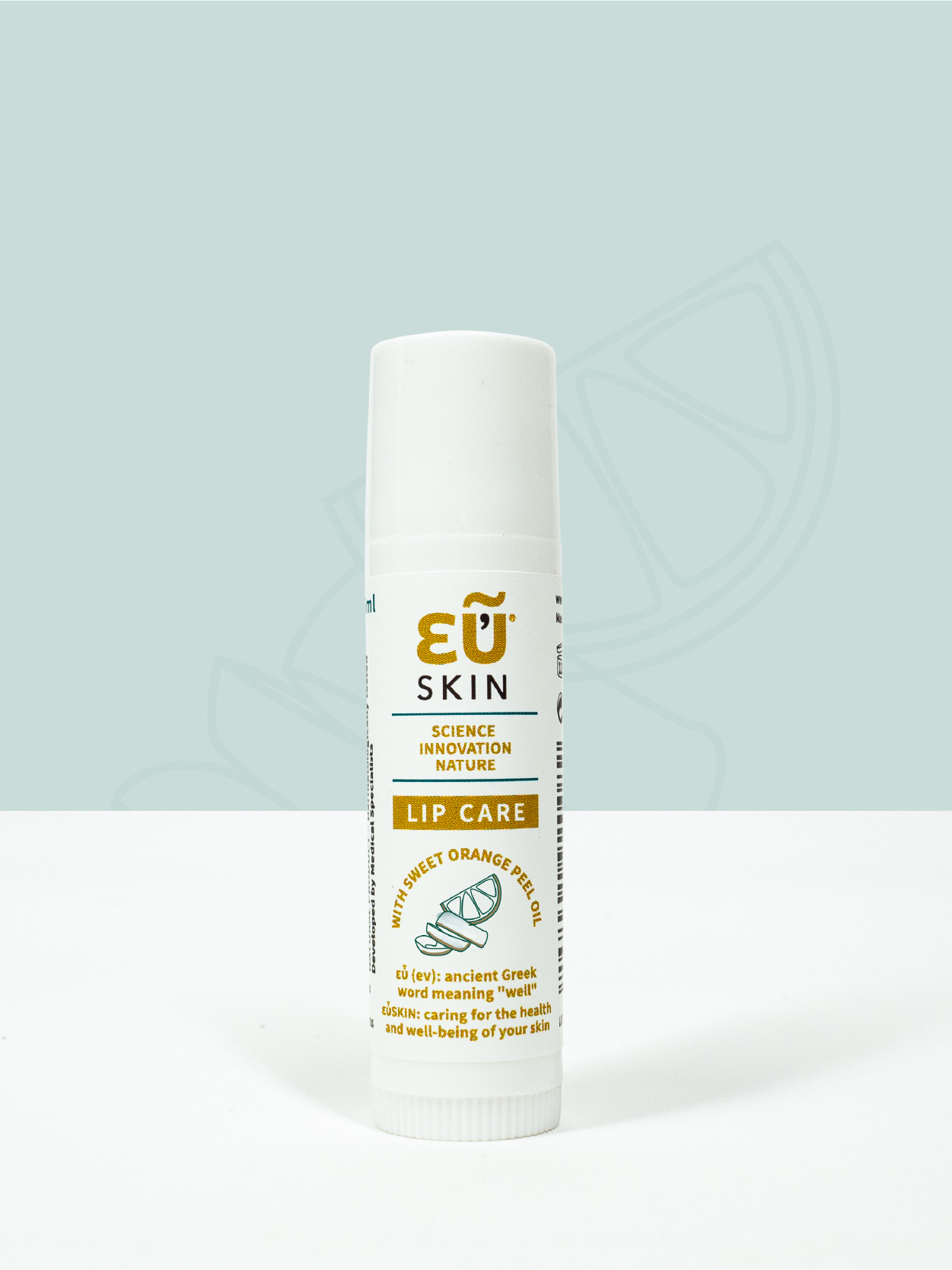
Ingredient Spotlight:
Shea Butter – The Nourish Booster
Shea butter is a skincare ingredient that has gained popularity for its exceptional moisturizing properties. Found in numerous skincare products, it’s cherished for its ability to deeply hydrate and nourish the skin. Let’s delve into the wonders of shea butter and why it’s a must-have in your skincare routine.
What is shea butter?
Shea butter, scientifically known as Butyrospermum parkii, is the solid fat extracted from mature fruits of the sheu tree (Vitellaria paradoxa). It has been used for centuries in Africa for its medicinal properties and as a natural moisturizer. Shea butter is rich in vitamins A, E, and F, as well as fatty acids1-3, which contribute to its moisturizing and anti-inflammatory properties4.
Shea butter is composed of a unique combination of fatty acids, vitamins, and other beneficial compounds. These include oleic acid, stearic acid, linoleic acid, tocopherols (vitamin E), and triterpenes5. These components contribute to the butter’s emollient, anti-inflammatory, and antioxidant properties, making it a valuable ingredient in skincare.
Shea butter skin benefits
- Intense Hydration: Shea butter is a potent emollient, meaning it seals moisture into the skin, keeping it hydrated and supple. It forms a protective barrier that prevents moisture loss, making it particularly beneficial for dry and dehydrated skin.
- Soothes and Nourishes: With its anti-inflammatory properties, shea butter helps soothe irritated skin and reduce redness. It’s gentle enough for sensitive skin and can alleviate symptoms of conditions like eczema and psoriasis.
- Enhances Skin Elasticity: The vitamins and fatty acids in shea butter promote collagen production, improving skin elasticity and reducing the appearance of fine lines and wrinkles.
- Softens Rough Skin: Shea butter’s emollient properties make it effective in softening rough patches of skin, such as elbows, knees, and heels. Regular use can result in smoother, more evenly textured skin.
- Protects Against Environmental Damage: Shea butter contains antioxidants like vitamin E, which protect the skin from environmental stressors like UV radiation and pollution, helping to prevent premature aging.
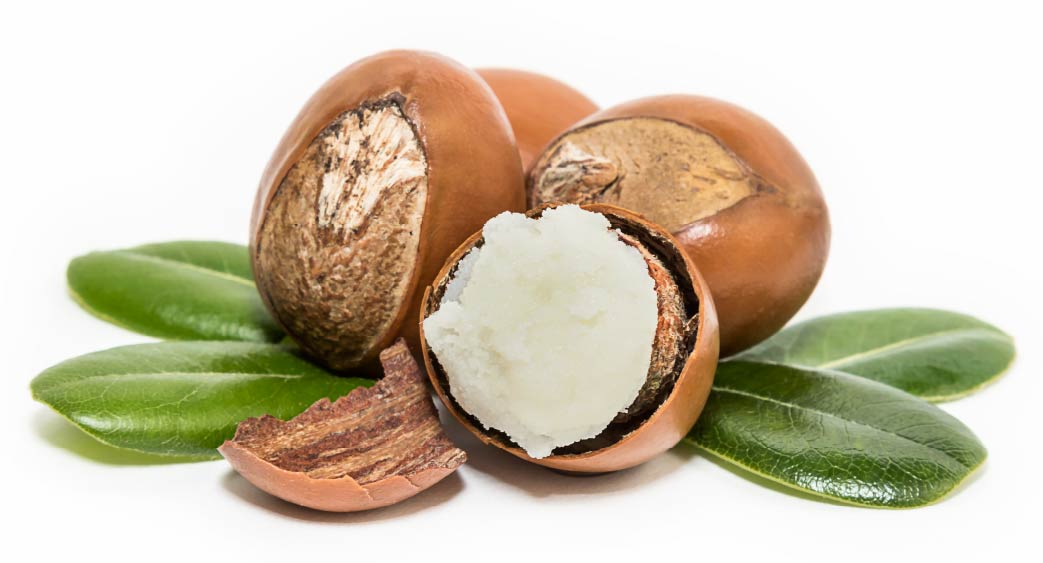
How to Incorporate shea butter into your skincare routine
Shea butter can be found in various skincare products, including moisturizers, body lotions, lip balms, and even hair care products. Look for products that list shea butter as one of the main ingredients for maximum benefits.
Who should use shea butter?
Shea butter is suitable for all skin types, including sensitive skin. Its gentle nature makes it ideal for those with dry, irritated skin conditions like eczema or dermatitis. Whether you’re looking to combat dryness, soothe inflammation, or simply maintain healthy, moisturized skin, shea butter can be a valuable addition to your skincare arsenal.
Our favorite shea butter products:
LIP CARE
The εὖSKIN® Lip Care is a mild fusion of rejuvenating and moisturizing constituents, specially created to soothe dryness and cracks in the lips. Its principal elements consist of Sweet orange peel oil, Calendula, and Shea butter.

